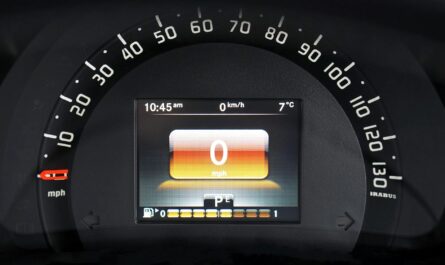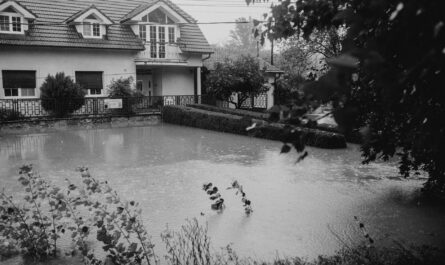Many people believe that their homeowners insurance policy covers everything that could possibly go wrong with their home. Unfortunately, this is far from the truth. While a comprehensive homeowners policy offers vital protection, several situations aren’t typically covered. Understanding these exclusions can save you from costly surprises down the line. Let’s explore eight things your homeowners policy probably doesn’t cover.
Flooding
One of the most common exclusions is flood damage. Standard homeowners insurance policies do not cover losses caused by floods. Flood insurance is typically purchased separately through the National Flood Insurance Program (NFIP) or a private insurer. This is crucial, as flood damage can be devastating and incredibly expensive to repair. 
Earthquakes
Similar to flood insurance, earthquake coverage is usually a separate policy. Even minor tremors can cause significant damage, and the cost of repairs can quickly escalate. If you live in a seismically active area, consider purchasing an earthquake endorsement to your existing policy or a standalone earthquake insurance policy. Learning about earthquake preparedness is also a good idea.
Pest infestations
While some damage from pests might be covered under certain circumstances (for example, if a roof leak caused by a termite infestation), widespread damage from termites, rodents, or other pests is usually excluded. Regular pest inspections and preventative measures are essential to protect your home and avoid unexpected costs. 
Negligence or intentional damage
Your homeowners insurance policy won’t cover damage you cause intentionally or through gross negligence. For example, if you intentionally damage your property or fail to take reasonable steps to maintain your home, resulting in damage, you likely won’t be covered. Understanding your policy details is crucial here.
Power surges
Electrical damage from power surges is often excluded, especially if the surge originates outside your home. Consider investing in surge protectors to safeguard your electronics and appliances. This relatively inexpensive precaution can prevent significant financial losses. [IMAGE_3_HERE]
Mold and mildew
Mold and mildew growth are frequently excluded unless the growth is a direct result of a covered peril, such as a water leak from a burst pipe (that itself is covered). Preventing mold growth through proper ventilation and moisture control is crucial. Learn more about mold prevention.
Wear and tear
Normal wear and tear on your home’s structure and appliances is not covered by homeowners insurance. This includes gradual deterioration, aging, or general damage from everyday use. Regular maintenance is key to preventing costly repairs down the line. [IMAGE_4_HERE]
Acts of war
Damage caused by war, terrorism, or other acts of war is typically excluded from standard homeowners insurance policies. Such events are often covered by specialized insurance policies, but these are typically far more expensive. It is important to be aware of such limitations in times of national and global conflict. Contact your insurance provider for clarifications.
Understanding the limitations of your homeowners insurance policy is crucial for responsible homeownership. By familiarizing yourself with these common exclusions and taking proactive steps to mitigate risks, you can better protect your investment and avoid financial hardship.
Frequently Asked Questions
What if I have a separate flood insurance policy, but my basement still floods? Ensure your flood insurance policy adequately covers your basement and that you understand the specifics of your coverage. Consider purchasing higher flood coverage if necessary.
Does my homeowners insurance cover damage from a tree falling on my house? This depends on the cause. If the tree fell due to a covered peril like a windstorm, it might be covered. However, if the tree fell due to disease or neglect, it likely won’t be.
I have a valuable collection of antiques. Are they covered? Standard policies may have limits on the coverage for valuable items. You may need a separate rider or endorsement to ensure your collection is adequately insured.
What should I do if I think something isn’t covered under my policy? Contact your insurance provider immediately to discuss your concerns and explore any possible options.
How can I make sure I have the right coverage? It’s a good idea to regularly review your policy with your insurer to ensure it still meets your needs. Consider consulting with an independent insurance agent to help you compare options and get the best coverage for your home.



